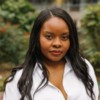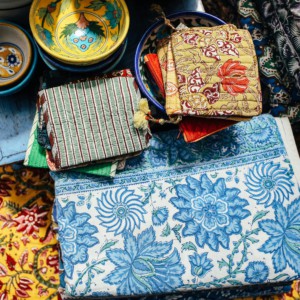First & Last Lines Studio
Learn to capture a reader’s attention within seconds and leave them wanting more with Forward Prize-winning and T.S. Eliot Prize-nominated Isabelle Baafi!
At what point should a poem ‘start’? And where should it ‘end’? What makes an attention-grabbing first line so arresting, and how can poets imbue theirs with the same qualities? What are the ‘best’ ways to end a poem, and how do we choose between them? How should the energy in a poem originate, build and conclude? With a whisper? With a shout? What is right for each poet, each poem, and how can we implement the different approaches? How can poets energise their poems, taking endings that limp across the finish line and making them go out with a bang?
The questions of how and where to start a poem and how and when to end it connect with broader, more intricate questions about why we write poems and the conceptual frameworks that surround them.
If you’ve ever wondered if your poems are the right length, why you keep going back to your favourite poems, or how you can leave your readers wanting more, this course is for you.
Across three sessions, participants will be led in discussions that analyse and evaluate the first and last lines of poems, mixing and matching them to understand why they fit and testing out their own lines on new work.
We’ll explore how to write great first lines that immediately capture your readers’ attention and how to write powerful last lines that linger in your reader’s minds, as well as the relationship(s) between first and last lines and the rest of the poem, how to start a poem, when to end a poem, how first lines and last lines can speak to and/or against each other for complex dialogues and surprising results, and how repeating forms and sequences, like the Sonnet Crown, can expand our ideas of what poems’ first and last lines are capable of.
In terms of openings and closings, we will examine the dynamic, the quiet, the unexpected and the abrupt, in poems by Jericho Brown, Mahmoud Darwish, Louise Glück, Luke Kennard, Carl Phillips, Nicole Sealey, Jo Shapcott, Matthew Sweeney, and more.
Studios are 4-week intensive courses. Reading material will be distributed before the course begins. There are no live chats so they are suitable for both UK & International students.
Concessions & Accessibility
To apply for a concession rate, please send relevant documentation showing your eligibility for one of our concessions to [email protected]. Conditions of eligibility are detailed here. If you have any questions or wish to be added to the waiting list of a sold-out course, please email [email protected].
What to Expect
Please check the left hand side of this page for information on how this course works in practice, under the heading ‘Course Style‘. If you’re unsure as to what any of the terms there mean, or if this course is a good fit for you, please visit our What to Expect page which includes some further information on how our courses function.
Image credit: @farbensammler
About Isabelle Baafi  View Profile
View Profile
Isabelle Baafi is the author of Chaotic Good (Faber & Faber / Wesleyan University Press, 2025), which is a Poetry Book Society (PBS) Recommendation, and Ripe (ignitionpress, 2020), which won a Somerset Maugham Award and was a PBS Pamphlet Choice. She won First Prize in the Winchester Poetry Prize 2023 and Second Prize in the London Magazine Poetry Prize 2022. Her writing has been published in Granta, the TLS, The Poetry Review, Callaloo, The London Magazine, and elsewhere. She is a Ledbury Poetry Critic and an Obsidian Foundation Fellow. She edits at Poetry London and Magma.
"Poetry School courses have helped me carve and find time for my writing and poetry in my day-to-day life. The community it helps nurture and the range and wealth of courses offered is a true sanctuary. Thank you."
 Taking a Position: Points of View Studio
Taking a Position: Points of View Studio Excavation Poetics: Language as Ruin Studio
Excavation Poetics: Language as Ruin Studio Essential Patterns in Poetry Masterclass
Essential Patterns in Poetry Masterclass